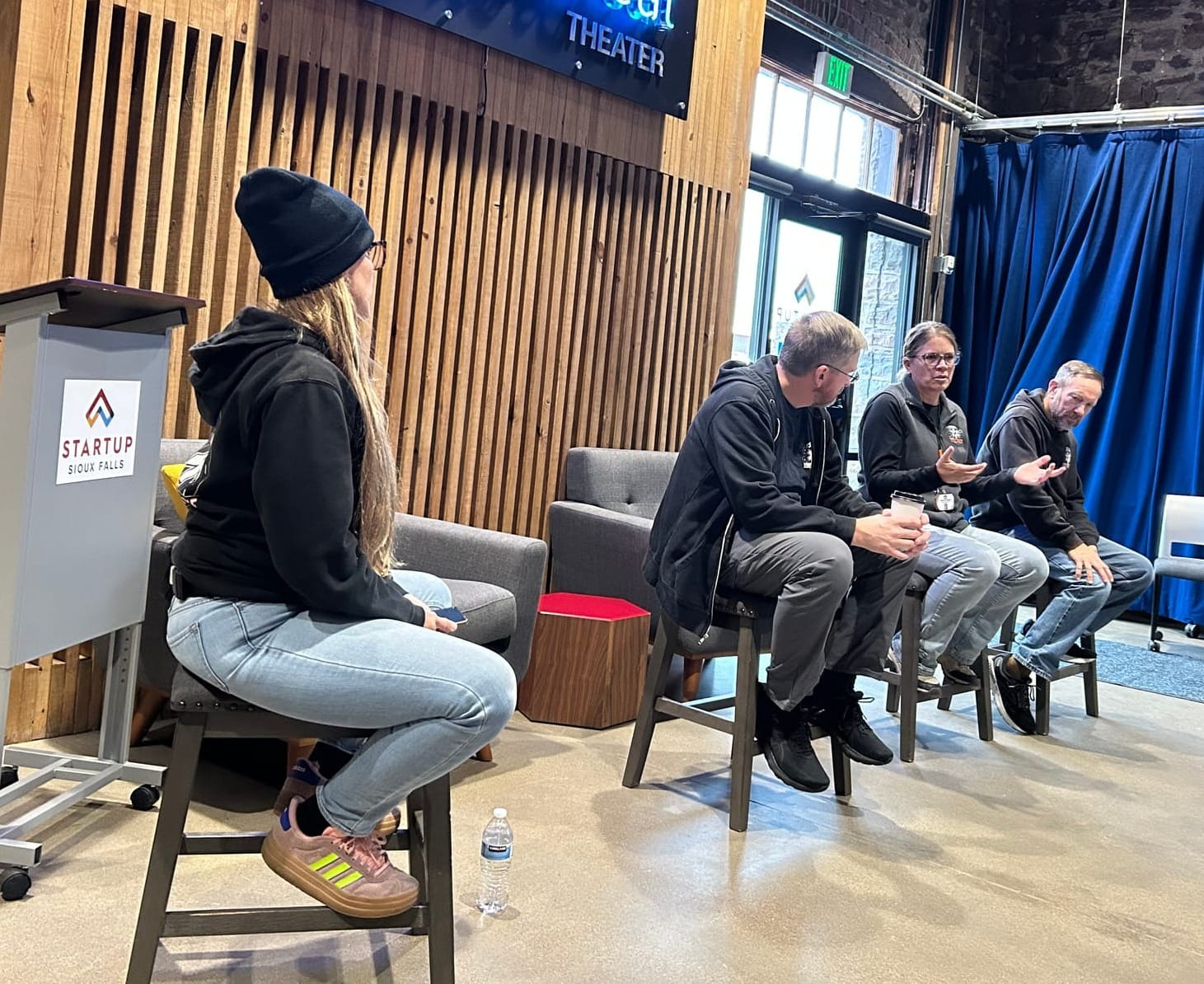Simplified: Sometimes, all a person needs is help filling a prescription. Other times, it's a pair of glasses. In more severe cases, it's a wound that's been festering, a severe asthma attack or an injury that merits a trip to the emergency room. Whatever the needs, Midwest Street Medicine has doctors on the streets doing what they can to help the unhoused population access essential medical care.
Why it matters
- It's National Hunger and Homelessness Awareness Week, and in recognizing the goal of raising awareness, Midwest Street Medicine hosted a panel of doctors Monday afternoon to share specific challenges people experiencing homelessness face in getting medical care.
- Conversation also expanded to address the feeling of overwhelm and helplessness the average person can experience when faced with the topic of homelessness. Dr. Melissa Dittberner – more commonly known as "Dr. Mo," – urged attendees Monday to try to shift their perspective from pity to compassion for a fellow human being going through a tough time.
- Panelists also pushed back against the cultural stigma and narrative that people experiencing homelessness are in that position through their own fault, or that their medical conditions (including substance use disorder or mental illness) are a character flaw rather than a medical condition.
"There's no way I'd survive some of the trauma my patients have gone through," said Dr. Bob Santella, a volunteer with Midwest Street Medicine.
Tell me more
Panelists Monday also shared some of the barriers they see keeping people from accessing healthcare.
For some, medical conditions are keeping them from accessing existing homeless shelters.
- Shelters have policies that guests must be able to take care of themselves, which means sometimes people recovering from surgery or experiencing medical events aren't allowed to stay.
"They're back on the street deteriorating," Santella said. "There's no system to take care of them."
For others, past trauma can keep them from wanting to go to a hospital even though they may need to, said Dr. Shannon Emery, Midwest Street Medicine founder.
Other barriers doctors shared include a lack of reliable transportation or a lack of identification.
- Without an ID, a person cannot sign up to receive Medicaid benefits, but there are also costs and transportation requirements associated with getting that type of documentation.
What's the scope of the need?
Midwest Street Medicine has helped about 600 unique individuals so far this year, which is no small feat considering the latest point-in-time homelessness count showed 614 unhoused people in Sioux Falls.
- But in terms of meeting all of the medical needs of those people, Dr. Don Ellis estimates Midwest Street Medicine is maybe covering about 10%.
"For me, it's not about solving all of the world's problems, but it is impactful for those patients right there," Ellis said, sharing the story of a woman found confused and unclothed in the street who he helped send to the ICU. "If the team had not been there, that lady would have died that night. And this is in Sioux Falls in 2025."
How can we help?
It starts with the mindset shift Dittberner mentioned of moving from a place of pity to a place of compassion and seeing the people on the street simply as people, not problems.
There are small ways you can help on an individual level. Dittberner said she always keeps a water bottle and a pair of gloves in her car in case she pulls up next to someone who might need them.
- If you're able, you can also donate to support the work Midwest Street Medicine is doing in the community or volunteer your time there or with any of the many other social service agencies serving people experiencing homelessness.
On a systemic level, you can also advocate for policies that support the most vulnerable people in our community, Emery said.
"When we're making policy, think of the most vulnerable person you can think of," Emery said. "Then use your sphere of influence for good."


